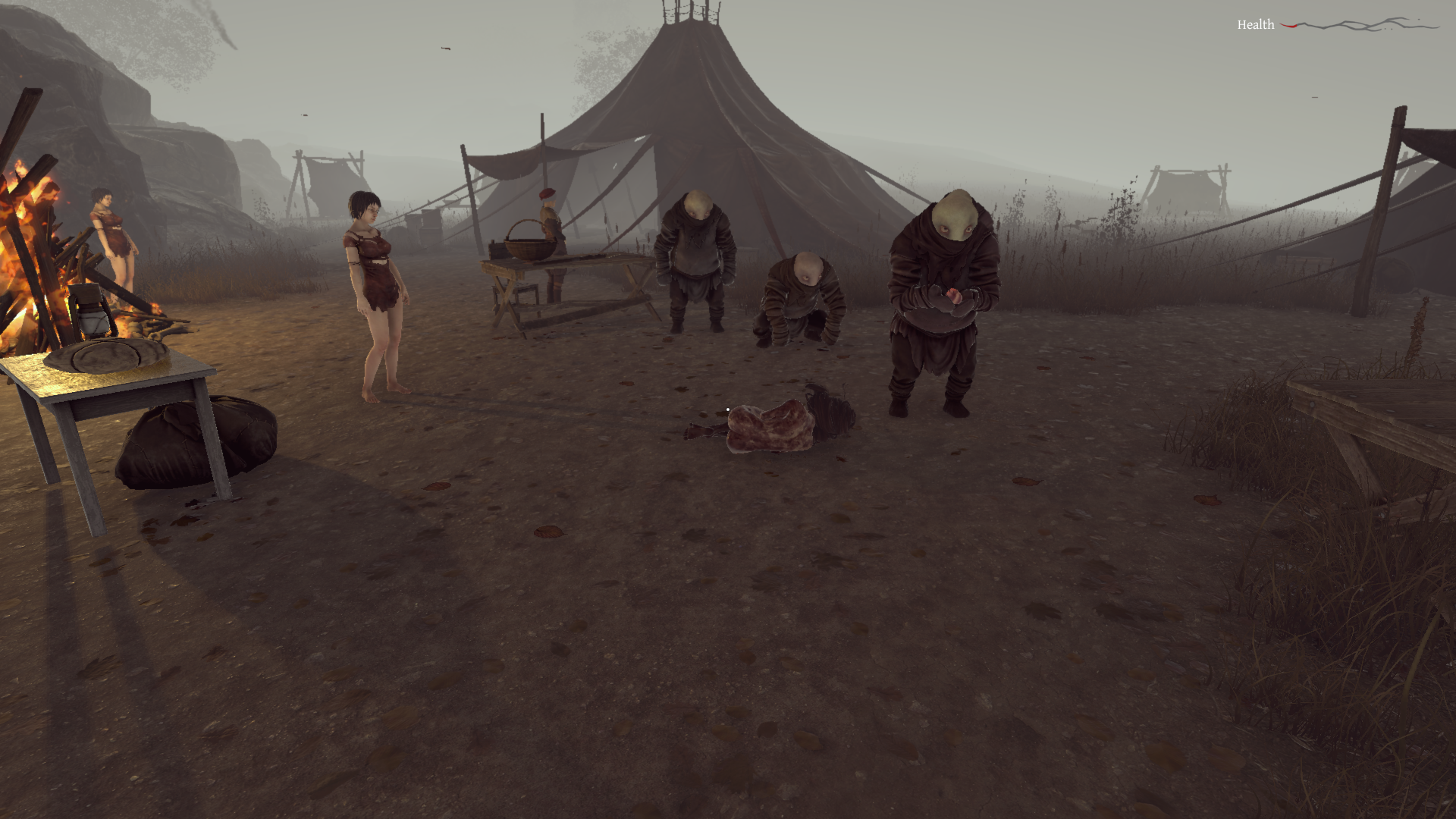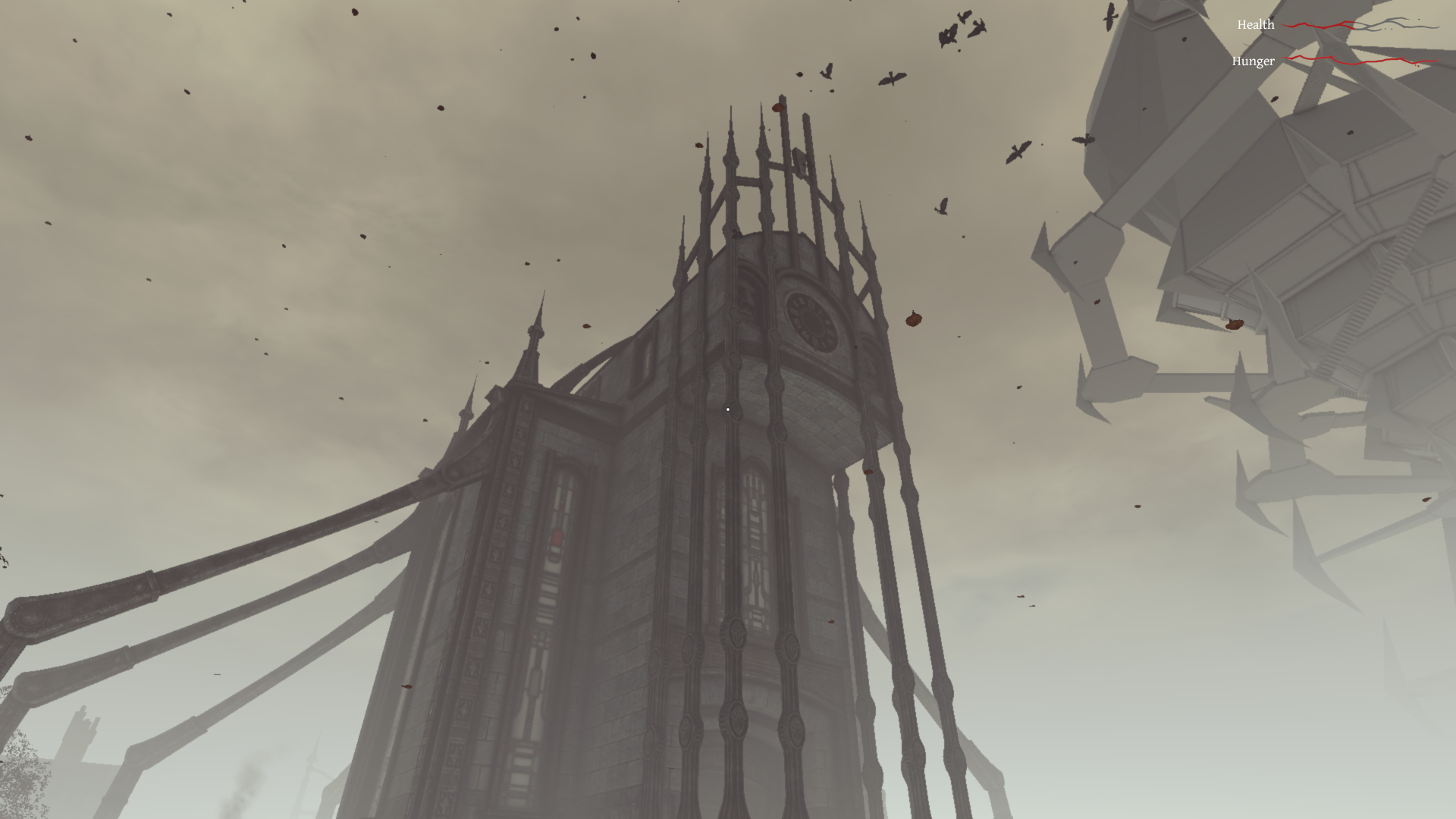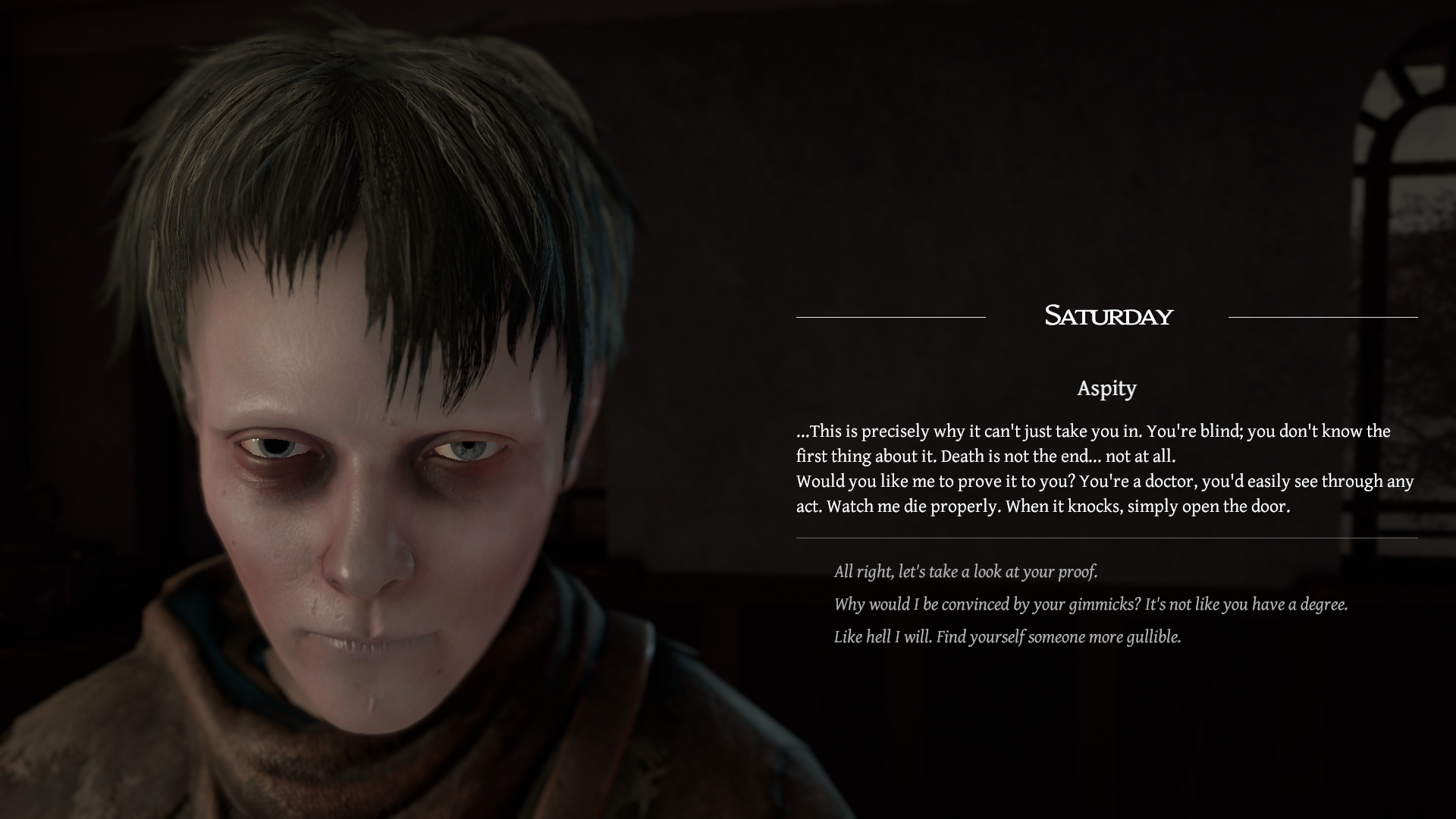The Pathologic remake is already disturbingly good
Hands-on with Pathologic's self-contained Marble Nest demo.

Insomnia helps me critique videogames. When I can't sleep, I think about games. When I think about games, I measure my favourites by how often they cross my mind after I've finished playing. The complicated lore of Dark Souls, appreciating Silent Hill 2's ending as an adult, the Keyser Söze moments of BioShock or Braid or Knights of the Old Republic all stand to mind as pertinent examples. For the first time in a long time, I experienced this again on Friday. Before bed the following evening, I played the introductory demo for Ice-Pick Lodge's Pathologic remake.
Those of you familiar with Pathologic will likely understand why. Without further explanation, you'll know that the 2005 survival roleplayer-cum-psychological horror game was deeply flawed, that it lacked direction, was at times unbearably slow and looked like a game from the '90s. Furthermore, its awkward at best and careless at worst translations made certain conversations entirely incomprehensible. And yet somehow none of this mattered because when it worked, boy did it work well.

It's early days yet, but the Pathologic remake—not to be confused with last year's Pathologic Classic HD—has already made some significant steps towards smoothing the edges of its source material while retaining the despondent charm that elevated the original to cult status. By way of a Kickstarter alpha demo—released to backers last week—The Marble Nest is a self-contained, indirectly-related sliver of story that sees you assuming control of The Bachelor—a doctor (one of three playable characters of the first outing) who's out to prevent the spread of the Sand Plague.
The demo begins with you peering out of a first floor window into a cluttered garden full of fallen leaves and barren trees. A plague doctor, long-beaked mask and all, stares up at you alongside a towering fire and a strange child talks in riddles about your perceived failing as the town's so-called saviour. As you explore the rest of the building, things seem off: motionless bodies lie strewn in the hallway and a live bull commandeers an entire upstairs room. It becomes clear this is in fact a nightmare, and you awaken in the same house but in better shape. A short bit of exploring reveals things aren't much more pleasant in reality.
From here you wander the town's thoroughfare, conversing with its civilians, fumbling over permanent dialogue choices, and discovering just how desperate things have become under the grip of the Sand Plague. The circumstances have rendered real money redundant, therefore you engage in avaricious trade-offs with unscrupulous folk for bandages and painkillers; you hear rumours of cults plotting against you; and discover the town's mayor-of-sorts is losing his mind. At one stage my lacklustre decision making sends a child to his death as I inadvertently fail to take him under my wing while diagnosing his dead father. Later, a stranger rips a woman's heart out and presents it to me as a misconstrued peace offering. The game balances its twisted set pieces and foreboding tone perfectly.

It's these subtleties in relation to the game's world that are particularly reassuring at this stage—the original Pathologic didn't give a toss about your missteps and as such was stronger for it. This demo only provides one day's worth of activity (the first played out in single day segments, whereby criteria was reset at the end of 24 in-game hours), but regardless of who you pursue and how you pursue them, you get a sense that this world lives on; that you're existence is trivial and the game wants you to know this at every turn. Even at this early stage, Pathologic's writing is better, its visuals are vastly improved, its pacing is still cumbersome but intentionally so. What's more, its nods and doffs of the cap to its forerunner are blatant, crude almost, but are still somehow never too on the nose.
Familiar masked folk parade around the church grounds, long-nosed plague doctor orderlies stalk every corner, armed soldiers guard the town's exits, an Odongh camp lies just beyond the town's boundary, and the children—who you won't meet just yet—are housed in an impossibly structured building in the distance: this is Pathologic as you might expect 11 years on, but enough has changed to keep things interesting. Inventory management returns in the form of a block system similar to the one employed in Diablo 2, but, interestingly, the demo segment spares combat.
The biggest gaming news, reviews and hardware deals
Keep up to date with the most important stories and the best deals, as picked by the PC Gamer team.
Telling more would spoil the finer details, but the Pathologic remake undoubtedly has me excited. I unashamedly loved the original, though, which likely means it'll remain a love/hate game for most even now. Similar to, say, Deadly Premonition, the original has accrued cult status even though it is a fundamentally flawed game. I'm not convinced the remake is on course dissuade its detractors (I imagine it'll continue to be a nightmare for review scorers too) but those who are on board have a lot to look forward to from hereon. The fact that Pathologic's second coming already features in my outlying twilight reflection is testament to that alone.

